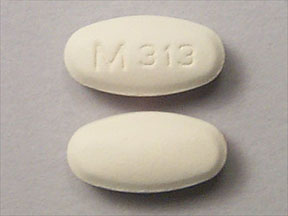
Tolmetin Coupons & Savings Card – Discount Prices from $186.58
Generic for: Tolectin 600
My prescription
Edit
600MG, Tolmetin (90 Tablets)
Select pharmacy

CVS
$186.58
COUPON PRICE
Walmart
$290.47
COUPON PRICE
Walgreens
$301.46
COUPON PRICETolmetin savings card
Show this card to your pharmacist
CVS
$186.58
BIN
ID
PCN
GRP
019876
LHDFAD0E62
CHIPPO
LHX
Powered by
More prescriptions for rheumatoid arthritis
More prescriptions for rheumatoid arthritis
Price history for Tolectin 600 (brand) & Tolmetin (generic)
90 Tablets, 600MG
Average retail price for Tolectin 600
Average retail price for Tolmetin
Average SaveHealth price for Tolmetin
Our price history data is based on aggregated prescription data collected from participating pharmacies in America. Our prescription data updates daily to reflect the latest price changes. If you notice a missing data point, it means there wasn't sufficient data available to generate a monetary value for that date.
We analyzed Tolmetin prices for (600MG, 90 Tablets) over the last 12 months. The average retail price was $353.18, while the average price using the SaveHealth discount card was $294.54. That's a savings of approximately 16.60% when using our Tolmetin coupon.
Compared to the generic version, Tolectin 600 had an average price of $1242.86 over the same time period. With the SaveHealth savings card, Tolmetin is 76.30% cheaper on average than Tolectin 600.
*Retail prices are based on pharmacy claims data, and may not be accurate when we don't have enough claims.
Tolmetin dosage forms
Dosage Quantity Price from Per unit 600MG 90 Tablets $186.58 $2.07 600MG 30 Tablets $74.39 $2.48
| Dosage | Quantity | Price from | Per unit |
|---|---|---|---|
| 600MG | 90 Tablets | $186.58 | $2.07 |
| 600MG | 30 Tablets | $74.39 | $2.48 |
Tolmetin Warnings
Tolmetin, a nonsteroidal anti-inflammatory drug (NSAID), carries certain risks and requires careful consideration before use. Below are important safety and warning details for users and healthcare providers:
Heart Risks: Use of tolmetin may occasionally elevate the risk of heart attack or stroke. This can occur at any stage during treatment but is more probable with prolonged use. The risk is heightened in older adults and individuals with heart disease or increased risk factors such as smoking, family history of heart disease, high blood pressure, or diabetes. It is crucial not to use this medication immediately before or after heart bypass surgery (CABG).
Gastrointestinal Concerns: There is a rare potential for serious, sometimes fatal, bleeding in the stomach or intestines. This can arise without any forewarning signs at any time while on this medication. Older adults are particularly susceptible to this effect.
Emergency Situations: Discontinue use and seek immediate medical attention if you experience any of the following severe side effects: persistent stomach or abdominal pain, black or tarry stools, vomit resembling coffee grounds, pain in the chest, jaw, or left arm, shortness of breath, unusual sweating, confusion, unilateral weakness, difficulty speaking, or sudden changes in vision.
Patients are advised to discuss the advantages and potential hazards of tolmetin with their healthcare provider to make informed decisions about its use.
Tolmetin Side Effects
Common side effects:
- Nausea
- Vomiting
- Heartburn
- Dizziness
- Drowsiness
- Diarrhea
- Headaches
Less common but important to monitor:
- Elevated blood pressure
Serious side effects:
- Fainting
- Rapid or pounding heartbeat
- Changes in hearing like ringing in the ears
- Mood alterations
- Difficulty or pain when swallowing
- Easy bruising or bleeding
- Changes in urination
- Vision problems
- Symptoms of heart failure such as swelling in the ankles or feet
- Unusual fatigue
- Sudden weight gain
- Significant liver damage, indicated by persistent nausea or vomiting, stomach pain, loss of appetite, dark urine, or yellowing of the skin or eyes
- Severe allergic reaction, indicated by fever, swollen lymph nodes, rash, itching or swelling of the face, tongue, or throat, severe dizziness, or difficulty breathing
Tolmetin Interactions
When taking tolmetin, be aware that it can interact with various drugs and supplements. It's crucial to inform your healthcare provider about all medications and supplements you are currently using, including both prescription and over-the-counter products, vitamins, and herbal supplements.
Tolmetin should not be used with Ketorolac. Your doctor may choose not to prescribe tolmetin or decide to adjust other medications you are taking.
Certain medications are usually not recommended with tolmetin but may be necessary in specific situations. Your doctor might adjust dosages or usage frequency if these are prescribed together. These include a wide range of medicines such as abciximab, Aspirin, Clopidogrel, Dabigatran, Enoxaparin, Warfarin, and many others. Combining these with tolmetin can heighten your risk of bleeding and other side effects.
Additionally, tolmetin may increase the risk of side effects when taken with medications like ACE inhibitors (e.g., Captopril, Lisinopril), angiotensin II receptor blockers (e.g., Losartan, Valsartan), corticosteroids (e.g., Prednisone), and diuretics (e.g., Furosemide). If used together, your healthcare provider may need to adjust your treatment plan.
Finally, tolmetin may interfere with certain laboratory tests, potentially leading to inaccurate results. Ensure that all medical personnel are aware that you are taking tolmetin. Always follow your healthcare provider's guidance regarding the use of tolmetin and any other medications.
